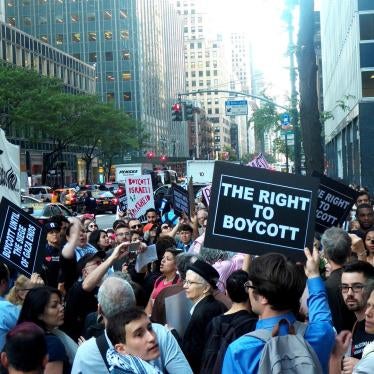The recent decision of the U.S. National Labor Relations Board (NLRB) to permit employers to classify as “supervisors” employees with no real management authority violates international labor and human rights laws, Human Rights Watch said today in a letter to NLRB members. The NLRB ruling potentially deprives millions of workers of legal protection if they are fired for trying to organize unions or bargain collectively.
In the key decision of the so-called “Kentucky River Trilogy” of rulings, the NLRB expanded its definition of “supervisor” under the National Labor Relations Act to include employees with incidental oversight over coworkers even when such oversight is far short of genuine managerial or supervisory authority. Since the National Labor Relations Act does not protect the freedom of association of supervisors, employers are free to fire them for trying to organize or for other trade union activity.
“With this legal sleight of hand, the NLRB has created an ersatz category of employee – people without the authority of real supervisors or management and without the rights of ordinary employees,” said Jamie Fellner, director of the U.S. Program at Human Rights Watch. “Employers may be pleased, but with this ruling, the United States violates its labor and human rights obligations under international law.”
The International Covenant on Civil and Political Rights, which the United States ratified in 1992, specifically sets out workers’ right to freedom of association and to form and join trade unions. The Committee on Freedom of Association of the International Labor Organization has developed the following principles governing when employees may be considered supervisors for purposes of labor law protections:
• The expression “supervisors” should be limited to cover only those persons who genuinely represent the interests of employers;
• Legal definitions of “supervisors” or other excluded categories of workers should not allow an expansive interpretation that excludes large numbers of workers from organizing and bargaining rights; and,
• Employees should not be “excluded” to undermine worker organizing or to weaken the bargaining strength of trade unions.
Human Rights Watch will support efforts of workers, trade unions, other human rights advocates, and allied social movements to uphold the rights of workers by seeking legislation that will define “supervisor” under the NLRA in conformity with international legal standards.
To read the letter from Human Rights Watch to NLRB members, click here.






